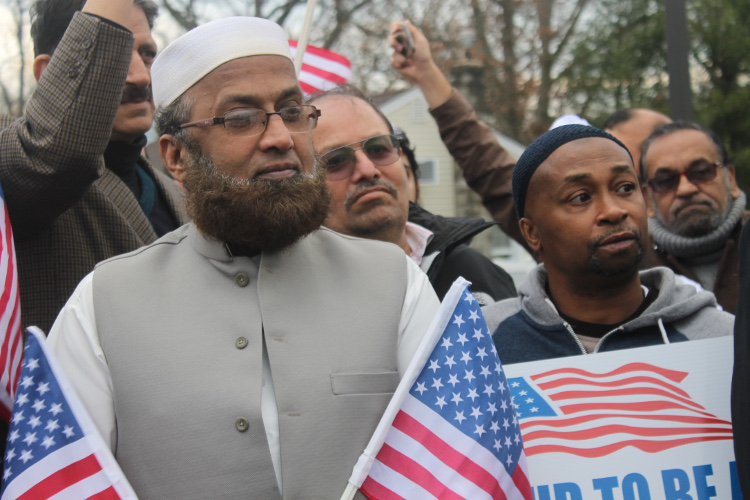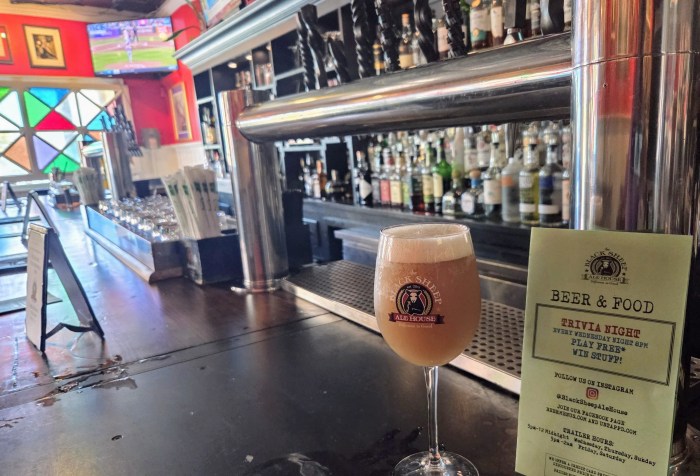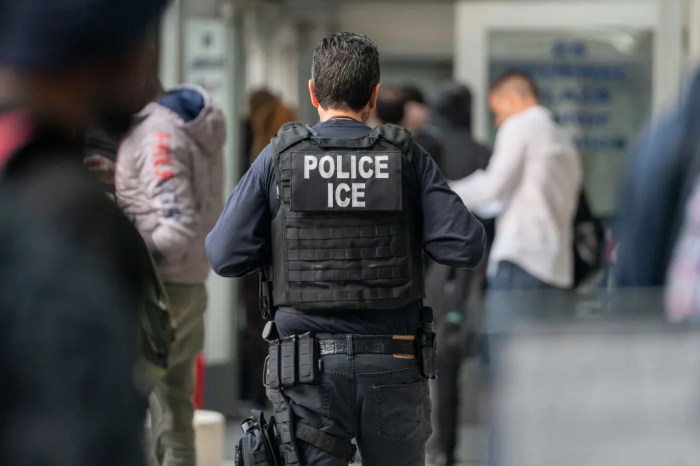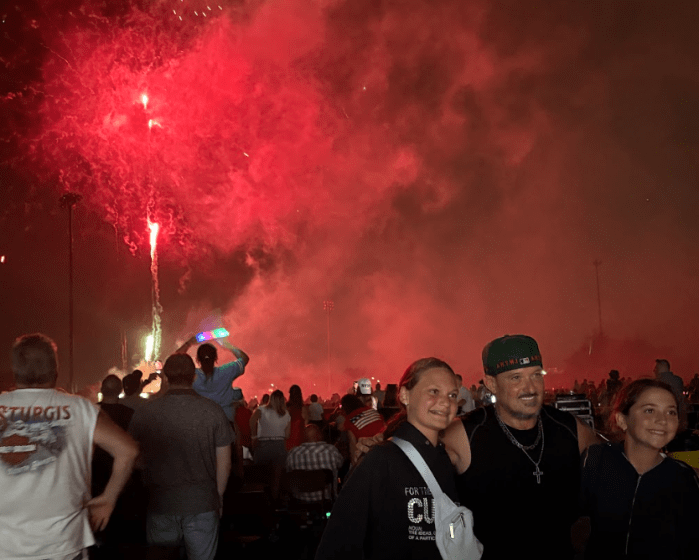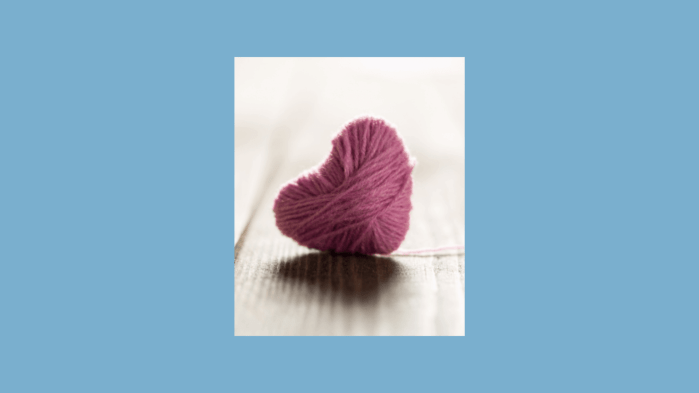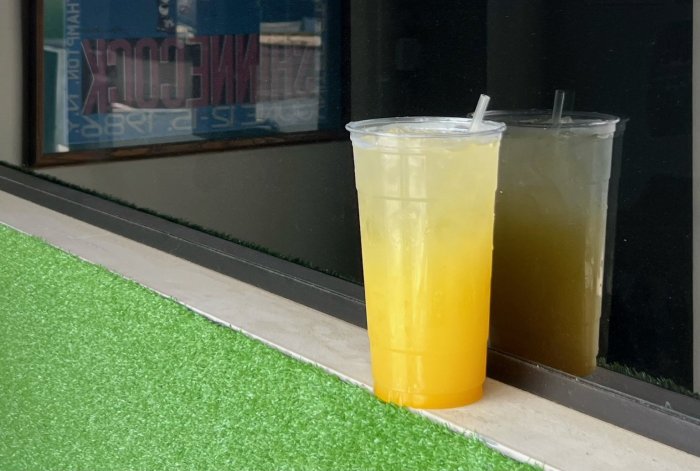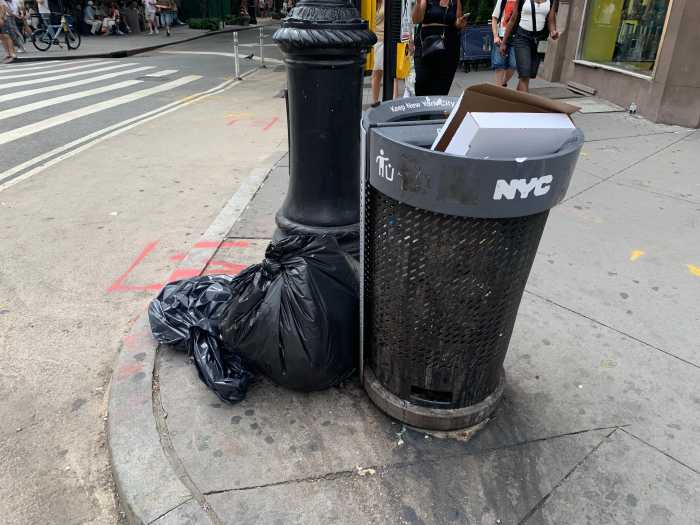For much of the US presidential election cycle, the coverage of Muslim Americans in the country has almost exclusively focused on national security—that their religion inherently makes them a danger to society and even the good ones are somehow responsible for failing to weed out troublemakers in their own communities.
Muslim families watched in horror last December when Donald Trump, a reality TV star and businessman vying for the Republican Party’s nomination, proposed a ban on all Muslims entering the US.
They cringed, but were not surprised, when he suggested law enforcement spy on their mosques—a controversial tool that has become all-too commonplace after the Sept. 11, 2001 attacks—and have the federal government establish a database of all Muslims living in the US.
There were moments, although fleeting, that made them swell with pride, like when Ghazala and Khizr Khan, the parents of a fallen Muslim soldier, became the unexpected stars of this election.
With the vitriolic presidential election careening toward a welcomed end, Long Island Muslims interviewed over the course of the final weeks of the race say they’re motivated, perhaps more than ever, to flock to the polls. Muslims aren’t the only segment of the population who feel they have been unfairly maligned this election, but the long-list of inflammatory remarks, perhaps buttressing a troubling rise in attacks on mosques and rampant Islamophobia, has them confident people will be inspired to turn out in droves, according to surveys and chatter in mosques.
“Until this year we were not serious,” about getting involved politically, Dr. Safdar Chadda of the Islamic Center of Long Island in Westbury, tells the Press. “This is the first time we’re doing it in an organized way.”
To ensure strong turnout on Tuesday, a coalition of mosques across the Island held a picnic at Belmont Lake State Park in September to encourage people to head to the polls. In Nassau County, community leaders gathered at a local restaurant to strategize how best to mobilize volunteers and their plans for upcoming meet-the-candidate events.
The campaign to bolster the ranks of registered voters is not only about Tuesday’s presidential election. Leaders hope to channel the motivating factors contributing to voter enthusiasm into something more tangible, perhaps even encouraging some to run for office.
What community leaders quickly realized, however, was Muslim Americans here were already motivated to register, but also vote come Nov. 8. The unifying force, strangely enough, was Donald J. Trump.
“Donald Trump, believe it or not, is the best thing to happen to Muslims in America because it kind of gave them a kick in the pants,” Dr. Mamoon Iqbal, a leader at Masjid Noor in Huntington, tells the Press.
“People themselves want to register,” Chadda adds, “because their own future is at stake.”
Get Out The Vote
Despite the apparent enthusiasm, mosques across Nassau and Suffolk counties say they’ve collectively registered more than 10,000 new voters over the course of eight months—beginning during the primary season and continuing through the general election.
Surprisingly, the most sought after segment of potential new voters were 50-and-60-year-olds who have lived in the US for decades but mostly shrugged when election season rolled along.
“The way the political atmosphere is, and how charged the election is, everybody is a stakeholder in this election,” says Iqbal. “So they want to have their voices heard. The way to get your voices heard is to go out to the ballot box.”
The same thing goes for older generations of Muslim Americans in Nassau County.
“They’re inspired now, obviously,” says a trustee at Masjid Hamza Islamic Center of South Shore in Valley Stream, who requested anonymity because of the toxicity of this election. “The rhetoric is directly aimed toward Muslims.”
Long Island Muslims are not alone.
Muslim advocacy groups across the country report mobilizing voters at unprecedented levels through voter registration campaigns online and through traditional canvassing efforts.
The US Council of Muslim Organizations said last week its Get Out The Vote campaign it initiated last December “has been overwhelmingly success.” The Council on American-Islamic Relations (CAIR) has had similar initiatives, as has Emerge USA, which focuses its efforts entirely in swing states like Pennsylvania, Virginia and Florida, and has used the hashtag #Muslimswingvote to galvanize voters.
Inspired by Trump’s attacks against the Khans, Mirriam Seddiq, a criminal defense attorney and Muslim advocate, created the American Muslim Women PAC. The political action committee has endorsed Clinton and has raised money for her campaign.
“We are awake and motivated now and we are getting organized,” Seddiq tells the Press in an email. “Not the real task is not to be complacent again, because it is that complacency that allowed us to be put in this position in the first place.”
Switching Allegiances
A recent CAIR survey found that 86-percent of Muslim voters polled said they intend to vote this presidential election, with 72 percent vowing to support the Democratic nominee Hillary Clinton.
There was a time when Republicans dominated the Muslim vote. In 2000, Muslims overwhelmingly supported George W. Bush over Democrat Al Gore. Four years later, however, the pendulum had swung in favor of the Democrat John Kerry.
The level of support from Muslims directed at Democrats has only grown since. According to CAIR, 49 percent of Muslims identified as Democrat in 2008, compared with 67 percent going into this election.
Chadda, of the Islamic Center of Long Island, was one of those Republicans. But in September he changed his party status to Independent and has pledged to vote for Clinton.
“It has been on everybody’s minds and some people are really worried and scared,” he says of some of Trump’s remarks.
Recently one of his daughters gave an ultimatum. If Trump wins the election, she said, “I don’t want to live here, I want to go back to Canada”—the country of her birth.
Dr. Yousuf Syed, trustee at the Selden Mosque, is also a registered Republican voting for Clinton.
“I’m not too happy as a Republican,” he says, adding: “If somebody personally picks on [a religion], it’s a matter of concern.”
Muslim Americans are historically socially conservative, which would appear to be a tantalizing segment of the electorate for Republicans outspoken about religious liberty. But the never-ending War on Terror, Bush-era surveillance of Muslims, and now Trump’s perceived attacks on the religion has damaged that once promising relationship, maybe even irrevocably.
Muslims who immigrated to the US “gravitated toward their social polices and fiscal conservativeness,” Iqbal says. “That has definitely changed.”
As nonprofits, Mosques are careful to remain apolitical. But with one particular candidate using anti-Islam rhetoric to spur support in an age of terror on TV and 24/7 cable news, it’s hard for them to not wear their heart on their sleeve.
Imam Muhammad Abdul Jabbar of Masjid Darul Quran in Bay Shore says the mosque doesn’t endorse or advocate for a certain candidate “but everybody knows who to vote” for.
“People say that after this hype is over, hopefully something good will come,” he says.
If Trump wins, he adds, “it will be a nightmare for the Muslims.”
‘It’s a Tense Time’
Some Muslim Americas are already living the nightmare.
It’s not uncommon for people to hurl disparaging remarks or gestures at families leaving Masjid Darul Quran, Jabbar says.
“Go back where you came from!” people yell, he says. “Sometimes they would use the ‘F’ word.”
“This is quite derogatory and full of hatred,” Jabbar continues. “And this has never been before—and this is because of Trump.”
In June, CAIR and U.C. Berkeley Center for Race and Gender released a report that found attacks on mosques in the US nearly quadrupled from 20 to 78 between 2014 and 2015. Nearly half of those incidents were recorded in November and December, which coincides with the attacks in Paris and San Bernardino, Calif., and Trump’s subsequent Muslim ban proposal.
In September, Adelphi University in Garden City shared with the Long Island Press preliminary results of a study scrutinizing how the election has impacted Muslim Americans. Respondents overwhelmingly blamed the rancorous presidential election for their feeling unsafe in the US. A majority also said they felt obligated to prove their patriotism and have experienced their loyalty come under fire.
Dr. Hussein Rashid, an ex-professor of religious studies at Hofstra University in Hempstead who is currently an adjunct at Columbia University, says Trump is holding on to a “mythic past” in which he challenges “the notion that the vast majority of Americans are in fact American.”
“It is troubling that he is being so successful in undermining the principles of our nation and that people believe that he is right,” he says in an email. “Both his followers and his victims.”
As the election winds down, Muslim American voters are experiencing a mixture of both anxiousness and relief that the incessant campaigns are coming to an end, says the trustee at the Valley Stream mosque who wished to remain nameless.
“It’s a tense time,” he says.
But now Muslim Americans, a group that accounts for about 1-percent of the US population and one that is often used as a tool by some to sew fear in the hearts of concerned Americans, will finally have their moment to have their voices heard—at the polls.
“As far as politics go, everybody is entitled to their own opinion, but I can tell you straight forward that the amount of rhetoric that is coming out of certain corners has really motivated our congregants to get out there and be a part of the conversation,” says Iqbal of Masjid Noor. “Because right now we feel we’re not a part of the conversation.
“Old, young, rich, poor—this is the topic of conversation right now,” he continues. “People are very motivated to get out there and vote and flex their muscle…to get their mandate across.
“We have doctors, lawyers, engineers, social workers, sports stars—our narrative is being hijacked and controlled by somebody else and we want to take back our narrative.”




